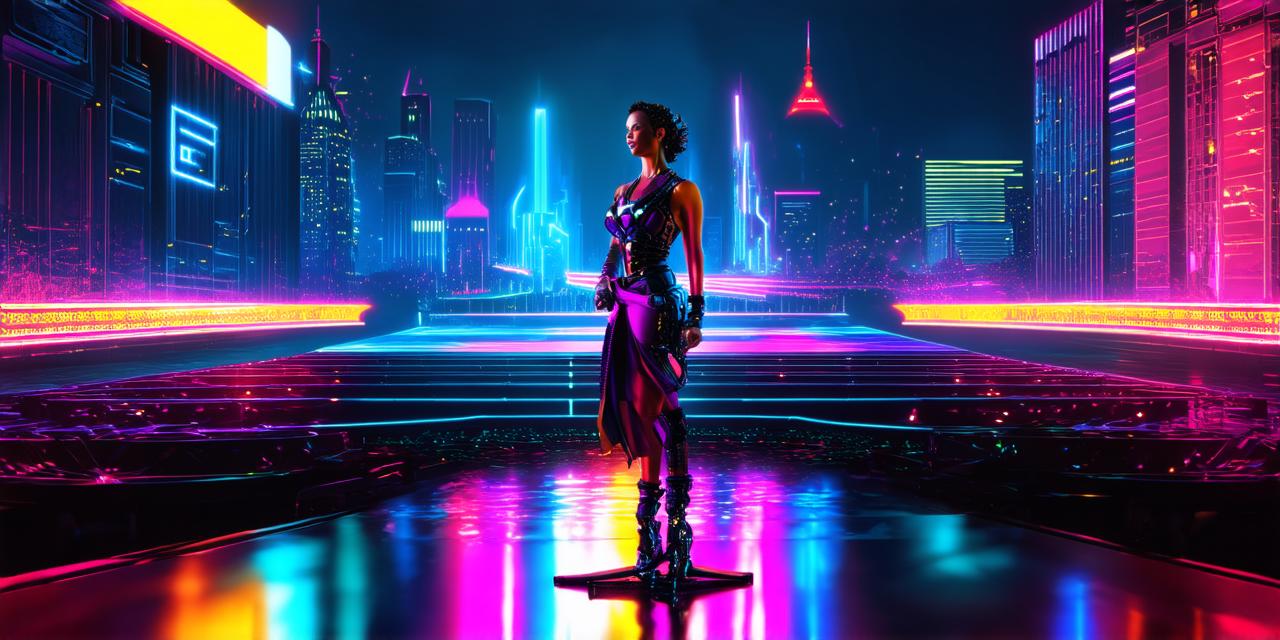Introduction
The metaverse is an immersive digital world where people can interact and engage with each other in virtual environments. With the rise of technology and the increasing popularity of virtual reality, the metaverse has become a thriving platform for performers to showcase their talents and connect with audiences from around the world. In this comprehensive guide, we will explore the steps you need to take to start performing in the metaverse and provide tips on how to make the most out of your virtual career.
Step 1: Choose Your Performance Platform
The first step to becoming a performer in the metaverse is to choose the right platform. There are several popular platforms available, such as Decentraland, Second Life, and VRChat. Each platform has its own unique features and audience, so it’s important to research and choose one that aligns with your interests and goals.
For example, Decentraland is a decentralized platform that allows users to create and monetize their own content. It has a large community of users who are interested in art, music, and gaming. Second Life, on the other hand, is a social networking platform that offers a wide range of virtual experiences, including live performances.
Step 2: Develop Your Performance Skills
Once you have chosen your performance platform, it’s time to develop your performance skills. This may include learning how to use virtual reality technology, creating your own content, or honing your performance techniques.
For example, if you plan to perform music in the metaverse, you will need to learn how to use virtual instruments and sound editing software. If you plan to perform art, you will need to familiarize yourself with 3D modeling and rendering programs.
Step 3: Build Your Audience
Building an audience is essential for any performer, whether they are performing in the physical world or the metaverse. To build your audience in the metaverse, you will need to promote your performances on social media platforms, participate in online communities, and collaborate with other performers.
For example, you can use social media platforms like Twitter and Instagram to promote your performances and connect with potential fans. You can also join online communities related to your area of expertise and participate in discussions and forums to build relationships with like-minded individuals.
Step 4: Monetize Your Performance
Monetizing your performance is an important aspect of being a performer in the metaverse. Platforms like Decentraland offer users the ability to monetize their content through cryptocurrency, while others offer advertising and sponsorship opportunities.
For example, you can sell virtual merchandise related to your performances, such as t-shirts or vinyl records. You can also offer live performances for a fee or accept donations from fans.
Step 5: Stay Up-to-Date with Technology

The metaverse is constantly evolving, and it’s important for performers to stay up-to-date with the latest technology and trends. This may include learning new software and tools, experimenting with different performance styles, and keeping an eye on industry developments.
For example, virtual reality technology is rapidly advancing, and performers will need to adapt their performances to keep pace with these developments. Staying up-to-date with the latest trends and technologies will help you stay relevant and competitive in the metaverse.
Case Study: A Successful Metaverse Performer
To illustrate how successful performers can thrive in the metaverse, let’s take a look at the case of DJ Snoop Dogg. In 2017, DJ Snoop Dogg performed in the virtual world of Decentraland, where he sold out his concert and raised $230,000 in cryptocurrency.
DJ Snoop Dogg’s success in the metaverse can be attributed to a number of factors. Firstly, he chose the right platform for his performance – Decentraland is a popular platform with a large community of users interested in music and virtual experiences.
